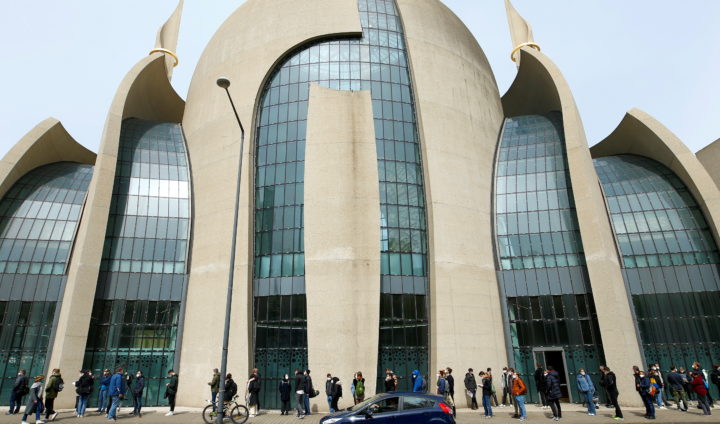Muslims in Germany frequently encounter widespread discrimination, animosity, and occasionally violence in their everyday lives, according to a fresh study commissioned by the interior ministry in Berlin.
The Independent Group of Experts on Muslim Hostility (UEM) examined scientific research, police crime statistics, and records of anti-Muslim incidents from anti-discrimination agencies, counseling centers, and non-governmental organizations.
The extensive 400-page report, published by a panel of 12 independent members, took three years to finalize. The findings were presented at the interior ministry on Thursday.
The UEM stated that at least one-third of Muslims in Germany have experienced hostility due to their religion. However, the actual numbers are likely higher as only 10 percent of Muslims seem to report acts of hostility and hate crimes against them.
Interior Minister Nancy Faeser stated, “Muslim life is an integral part of Germany.” Upon receiving the report, she added, “Many of the 5.5 million Muslims in Germany encounter exclusion and discrimination in their daily lives, including hatred and violence. It is crucial to bring attention to this and raise awareness of the still-prevalent resentment.”
According to the experts, German Muslims face not only blatant racism but also daily stereotyping from childhood to old age. Even German-born Muslims are often perceived as “foreign,” and Islam is viewed as a “backwards religion.” Women who wear traditional headscarves face particularly severe forms of hostility.
Analyzing popular culture, the report revealed that nearly 90 percent of the films watched by the panel portrayed Muslims negatively, frequently associating them with “terror attacks, wars, and the oppression of women.”
The commission was established in 2020 by former Interior Minister Horst Seehofer following an anti-Muslim shooting spree in Hanau, where a far-right German killed 10 people and injured five others. The attack shocked the nation and prompted human rights groups to express concerns about Islamophobic sentiment in Germany.
Saba-Nur Cheema, one of the 12 experts on the panel, highlighted that the report also uncovered details about prejudice towards Muslims that she described as “anonymous and subtle.”
According to the report, nearly half of the German population believes that Islam does not belong to Germany, and about one-third of the population feels estranged due to the presence of Muslims in the country. Cheema further stated that approximately 40 percent of the people in Germany would not accept a Muslim mayor. These attitudes significantly impact the daily lives of Muslims, leading to structural discrimination in employment and housing searches.
To address bias against Muslims, the commission recommended that the government establish a task force and a central clearinghouse to handle complaints. It also emphasized the need for training in daycare centers, schools, police stations, government offices, media outlets, and entertainment companies to combat the negative portrayal of Muslims. Textbooks and lesson plans should also be revised.
Germany’s Muslim community is diverse, with the majority having Turkish roots. Others originally migrated from Arabic countries such as Morocco or Lebanon. Many arrived in West Germany over 60 years ago as “guest workers” to contribute to the country’s economic progress.







